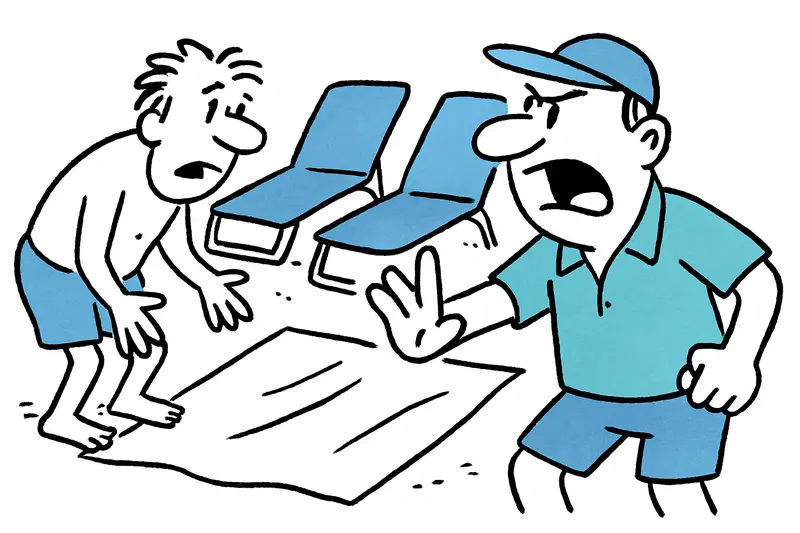At Playa Formentor, white towels and expensive sunbeds are at the center of a new complaint. Guests and authorities are examining whether public access is being restricted.
Towel blockade and high prices: What's happening at Formentor Beach
Recently, in the early morning, as the sun was just climbing over the pines, white towels suddenly stood across in the sand—as if drawing an invisible line. A few bathers who have been coming there for years shook their heads and called the municipality. Shortly afterward, a formal complaint landed with the coastal authority Costas.
The critique is simple: The Hotel Formentor apparently operates a kind of restricted zone between its own sunbeds and the water. Non-hotel guests are left with only marginal spots at the beach restaurant. The photo submitted shows towels in front of the sunbeds, as if someone were blocking the access. On the house's website, the sentence that the beach belongs to the resort is stated— a line that sparks further discontent.
Money Question: What Does a Day at the Beach Really Cost?
Anyone who doesn't have a room in the house now has to dig deep into their pockets: currently circulating prices are around 157.50 euros for a parasol with two sunbeds per day. A Balinese bed costs about 210 euros, each additional sunbed 65 euros. This is not only noticeable for families, but also changes who can afford front-row spots.
A holidaymaker who contacted the town hall of Pollença reports that in previous years she could rent sunbeds without issue. "This year I was told: \"Only for hotel guests\"," she says. Not a pleasant reception, given that many people have been visiting the beach for decades.
What the Law Says
Spanish coastal law states that access to the sea must be open. At least a six-meter-wide strip from the waterline should remain free; beach areas are generally intended for common use. Whether the current procedures clash with these provisions is now being examined by the authorities.
The hotel operators have long held the concession for the section. That alone allows them certain services—but not to permanently exclude the public. Whether a legal gray area is being exploited or simply misconduct is involved will become clear.
For many locals, the discussion is more than a legal detail: It's about everyday life, tradition, and who can still afford the coast. I was there briefly last week, spoke with a beach vendor who told me: "In the old days grandparents came with a towel; today they come with a credit card." A line that sticks.
The authorities have taken note of the complaints. Until a decision is reached, it remains to be seen whether the white towels will stay laid out in the long term—or whether more space will be created for everyone again.
Similar News

Around one-fifth of Mallorca's hotels stay open in winter
Mallorca isn't completely quiet in winter: around 20 percent of the properties stay open, mainly for older visitors and ...

Quality Seal for Vacation Rentals: Holidu and Island Council Agree on Stricter Rules
The Island Council and the German booking platform Holidu have reached an agreement: Only officially licensed vacation a...

Sóller and Port de Sóller: Autumn Crowds — Buses Packed, Parking Scarce
Even in October, many visitors still flock to Sóller and Port de Sóller. Residents report full buses, missing parking sp...

Due to Fire Hazard: Discover Airlines Bans Power Bank Charging On Board – What Mallorca Travelers Need to Know Now
Discover Airlines has banned charging power banks on board. Carry-on transport remains allowed, but Mallorca passengers ...

Higher Revenues Despite Fewer German Guests: Tourism in the Balearic Islands 2025
The Balearic Islands are recording significantly higher hotel revenues this summer — hotels are raising prices, renovati...
